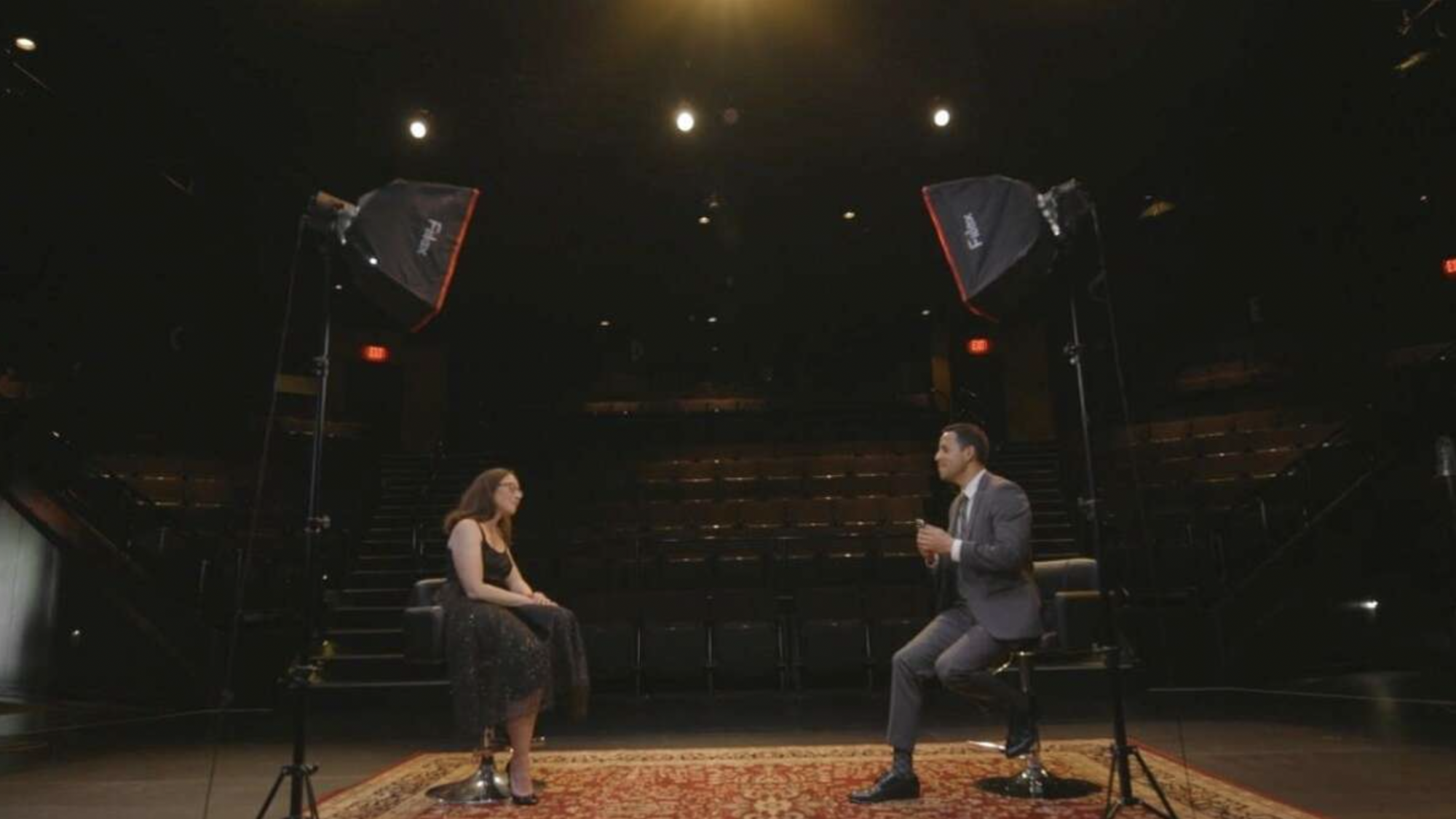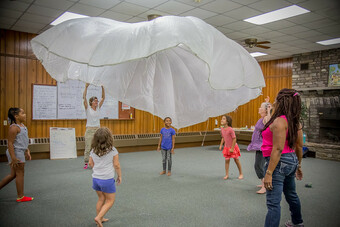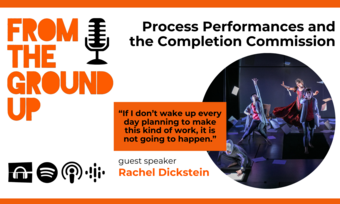Kit Ingui uses her role as managing director of Long Wharf Theatre in New Haven, Connecticut as a way to build Human Resources (HR) practices that create a supportive and inclusive work environment for all of employees and visiting artists alike. In this conversation from April 2021, Kit sits down with Iris McQuillan-Grace, a global HR leader and former managing director for Parent Artist Advocacy League (PAAL), to speak about the value of HR in the arts, how creating change is time-consuming, how an organization can prioritize HR, and more.
Iris McQuillan-Grace: How did you begin at Long Wharf?
Kit Ingui: I worked In company management on Broadway for eleven years, where I had a blast. And then I had a kid. So I was in my tiny Brooklyn apartment with my husband and son, was tired, and thought, Maybe there’s something else. And it wasn’t two weeks later that the job posting for Long Wharf came up. It just felt a little kismet, a little destiny. I applied and it worked out.
The thing I was most concerned about when I took the job was the HR responsibility. And it was very clear to me that there was a need for good HR support at Long Wharf.
Iris: What do you mean?
Kit: Long Wharf’s previous artistic director was terminated because of his sexually harassing behavior. The allegations that came up against him in the New York Times—that behavior led to his termination. In the wake of that experience, there was a significant amount of trauma for the staff. They needed to feel safe moving forward to work at Long Wharf. And the culture that was identified out of that termination, the fear-based culture that existed at the theatre because people were afraid that if they offered their opinions or perspective, they would experience harassment or be shut down or bullied… We had to do something about that. Attention to HR helped us put policies and practices in place that address that type of toxic culture.
Reflecting on my time working on Broadway, I noticed HR by its absence.
With most Broadway production companies, there are minimal traditional organizational departments, right? There is not typically a human resources department or manager. The company manager carries much of that. They—and the production stage manager—often serve as “human resources,” but are rarely given training or guidance on how to perform those duties. So, when I got to Long Wharf, I knew this was a gap in my formal knowledge.
Reflecting on my time working on Broadway, I noticed HR by its absence. There were moments where someone needed the support an HR professional could provide and it was missing. If there was ever any intimidation or harassment in a workspace, or when somebody needed to be replaced for any number of reasons… Those are places where I’d notice something was missing, but I didn’t know what it was.
Theatre folk often pick up the ball—we see a ball is dropped and so we pick it up—but maybe we don’t have the time to identify why the ball dropped.
Iris: Or what the ball is?
Kit: Yeah. And that’s not meant as a critique of us. We have a project-centric mindset, like, “Let’s just keep things moving.” Or, “We’re going to try to solve the problem in the short-term to keep the production process moving” instead of looking at the long-term impact of the company structures or decisions. There is a lot in the news about some bullying producers. And the impact of that type of a leader, of that type of producer—
Iris: —and the culture that it promotes…
Kit: Yes. That could be helped if we talked more about the responsibilities we as theatre producers and managers have as people managers. We don’t talk about that. We don’t talk about the fact that a company manager or a stage manager is a people manager. When I stepped into the associate managing director role at Long Wharf, it was when that light got bright. I walked in confidently with, “I see this list of responsibilities. Okay. I know how to do this job.” But the first time I needed to handle an HR investigation, or the first time—within my first few weeks at the theatre—that I had to terminate someone, I was like, “Wait, what?” These are skills that theatre administrators are not—but should—be trained to have if we’re not able to engage trained HR practitioners.
It is not acknowledged that there is not trained HR support on most Broadway shows or at many regional theatres. It doesn’t often exist. And then we see inappropriate behavior and harassing workplaces.
Iris: And cultures that aren’t inclusive or safe. Can you talk me through how you’re using all of your previous experience to fuel how Long Wharf is emphasizing and prioritizing HR now?













Comments
The article is just the start of the conversation—we want to know what you think about this subject, too! HowlRound is a space for knowledge-sharing, and we welcome spirited, thoughtful, and on-topic dialogue. Find our full comments policy here